July 19, 2023, 10:57 am
Efficient dental practice management requires striking a balance between providing excellent patient care and managing administrative tasks. However, the burden of administrative responsibilities can sometimes impede productivity and hinder the growth of your dental practice.
- Implement Dental Practice Management Software:
Investing in a comprehensive dental practice management software can significantly streamline administrative tasks. Such software can automate appointment scheduling, patient registration, billing, and insurance claims processing. By centralizing administrative processes, you can improve efficiency, reduce errors, and free up time for your team to focus on patient interactions.
- Outsource Non-Critical Tasks:
Consider outsourcing non-critical administrative tasks, such as accounting, payroll, or marketing, to external experts. This not only ensures these tasks are handled efficiently but also allows your in-house team to concentrate on patient-focused activities. Outsourcing can be a cost-effective solution, especially for smaller practices that may not require full-time staff for certain roles.
- Optimize Appointment Scheduling:
Efficient appointment scheduling is essential for reducing administrative burdens. Use time-blocking techniques to allocate specific time slots for different procedures, allowing your team to plan their schedules efficiently. Implementing automated reminders can help reduce no-shows and last-minute cancellations, ensuring a smoother flow of patient appointments.
- Streamline Billing and Insurance Processing:
Simplify billing and insurance processing to reduce administrative complexities. Clearly communicate payment policies to patients, and offer multiple payment options, including online payment methods. Electronic claims submission can expedite the reimbursement process and reduce paperwork, saving time for your administrative staff.
- Digitalize Patient Records:
Transitioning to digital patient records eliminates the need for physical paperwork and improves accessibility. Implement electronic health records (EHRs) to store and manage patient data securely. Digital records enable easy retrieval of patient information and facilitate quick updates during appointments, reducing administrative burden and enhancing patient care.
- Provide Ongoing Training:
Ensure your administrative team receives ongoing training to stay updated on industry regulations, best practices, and the latest advancements in dental practice management. Well-trained staff are more efficient and confident in handling administrative tasks, leading to increased productivity and smoother operations.
- Standardize Processes:
Standardizing administrative processes and workflows helps minimize errors and confusion. Create clear guidelines and protocols for various tasks, such as patient registration, insurance verification, and billing. Regularly review and update these processes to accommodate changes and improvements.
- Embrace Telecommunications:
Utilize telecommunication tools to facilitate efficient communication with patients and team members. Video conferencing can be employed for virtual consultations or team meetings, reducing the need for in-person interactions and saving time and resources.
Reducing administrative burdens is essential for improving productivity and optimizing the operations of your dental practice. By implementing dental practice management software, outsourcing non-critical tasks, optimizing appointment scheduling, streamlining billing and insurance processing, digitalizing patient records, providing ongoing training, standardizing processes, and embracing telecommunications, you can create a more efficient and productive dental practice. By relieving your team of administrative complexities, they can focus on providing exceptional patient care and nurturing patient relationships, ultimately contributing to the long-term success and growth of your dental practice.
